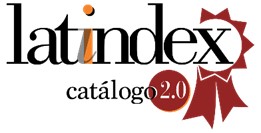Práticas avaliativas para a promoção da autorregulação da aprendizagem matemática: O feedback escrito em relatórios escritos em duas fases
DOI:
https://doi.org/10.48489/quadrante.22892Keywords:
assessment practices, self-assessment, written work, mathematics learning, secondary level.Abstract
The purpose of this study was to understand and deepen the assessment practices of Mathematics teachers at a high school level that would contribute to the promotion of a self-assessment attitude from students, when dealing with mathematics learning. In a collaborative context, the planning, execution and reflection of the two phased written report were developed. In an interpretative perspective, of qualitative nature, two Mathematics teachers were studied as case studies, José and Maria. Data collection included observation, work sessions and classes, interview and documental analysis. The data analysis was held in an integrative and analytic way. The results show that the feedbacks that take the reasoning of the student as their starting point are the ones that best help self-assessment. Giving feedback is difficult for teachers, but the use of rubrics favors this activity and aids accountability of students. The integration of assessment in the teaching and learning comes from planning the tasks, the working mode in the classroom, and the characteristics of that assessment.










